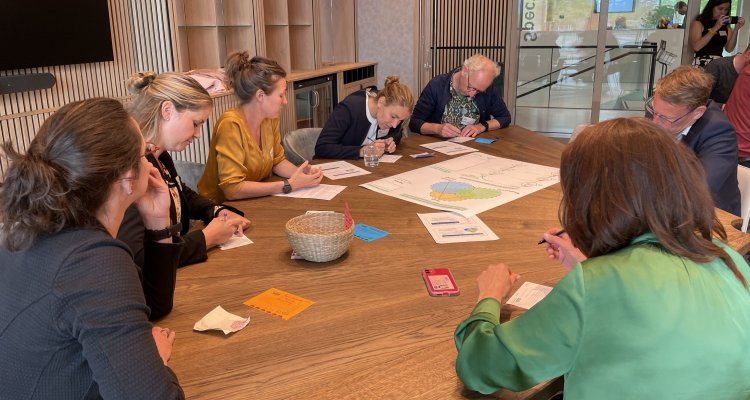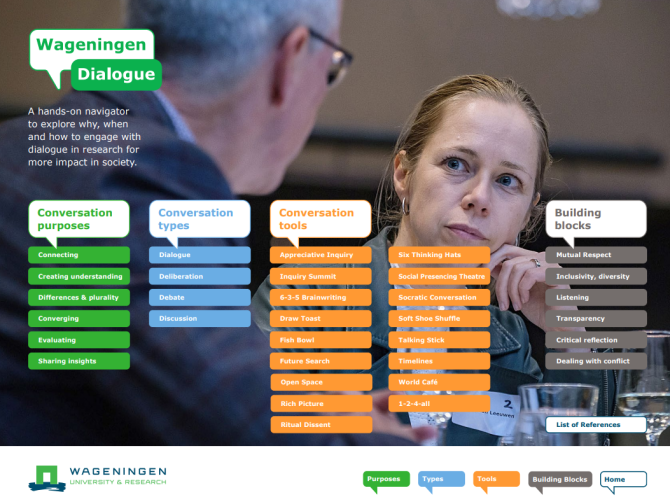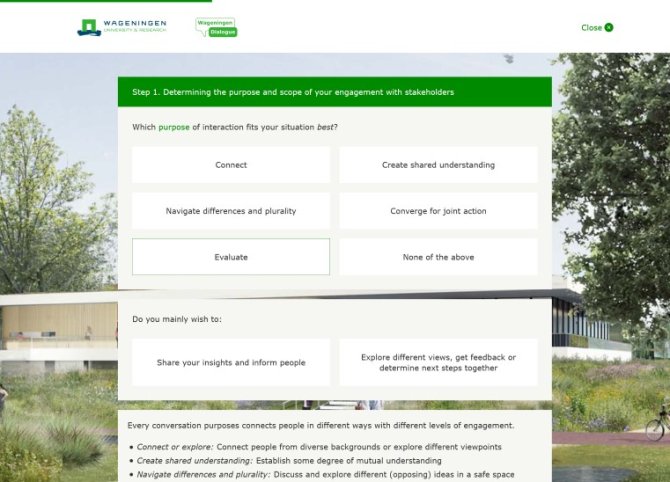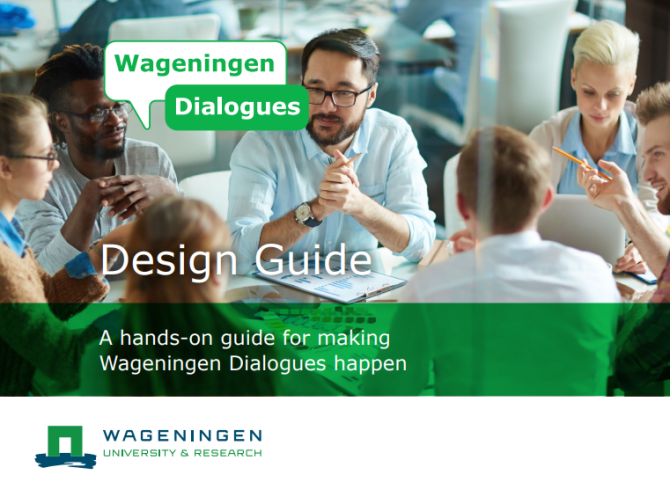
Get started & support
Engaging in a dialogue may appear deceptively simple. It’s more than just talking and listening. There is a rich world behind effective communication that involves connecting the right individuals and harnessing valuable insights. Our inspirational sources and engaging workshops help you to uncover various methods, tools and skills for fruitful dialogues. If you find yourself wondering when dialogue becomes relevant, how to organise it, or how to become a better conversation partner, you've come to the right place!
Building blocks of dialogue
When organising or facilitating a dialogue, some building blocks are essential. The Dialogue Navigator gives some practical tips to adhere to these building blocks. Our facilitators can also help to explore how these building blocks can be met within your situation.
1. Inclusivity and diversity
- Acknowledge the different levels of knowledge and stimulate equal access to relevant information
- Consider the presence of those involved, interested, and affected
- Remove (unnecessary) barriers to participation
- Avoid (unintentional) stereotyping
2. Transparency
- Be clear about the objectives and roles of those involved
- Giving insights in decisions taken can increase levels of trust
- Shared ownership contributes to greater support of the process
3. Critical Reflection
- Get comfortable in learning from mistakes and failures
- Stay flexible in (adjusting) your objectives
Sources, workshops and advice
There is more to dialogue than talking and listening. We have gathered several resources for you to help you think about dialogue or organise one. The Dialogue Navigator, Decision Tree and Design Guide are a great starting point to understand the principles of dialogue, enable you to organise dialogues and to embody some dialogue principles.
- Unfortunately, your cookie settings do not allow videos to be displayed. - check your settings
"Dialogue helps me to better understand which knowledge, opinions and emotions are present”
Bert Lotz, researcher
New to dialogue
Explore why, when and how to use dialogue in a scientific context with the Dialogue Navigator.
Is dialogue appropriate
Follow the Dialogue Decision Tree to determine your purpose and discover appropriate methods.
Organise a dialogue
Follow the Dialogue Design Guide to make your dialogue flourish.
Curious for more?
We developed a rich overview of inspirational sources and workshops to follow. This extensive overview can be downloaded here and is categorised between sources and workshops to understand the principles of dialogue, to organise dialogues, and to embody the dialogue principles. WUR employees can also browse through the intranet group for experiences of colleagues and announcements of upcoming workshops and dialogues. Everyone in and around Wageningen can join the Dialogue Community.
Personal support
The Dialogue Facilitators Pool offers facilitation support for dialogue processes and events in the WUR domains. This group of both experienced and aspiring facilitators shares a passion for communication, dialogue and multi-stakeholder processes. This enthusiastic group of researchers, lecturers, students, and staff strengthens their skills and shares their experiences through regular peer-to-peer intervision sessions. Our facilitators provide one-off advice, but can also be involved as a facilitator in projects. Contact us if you are looking for support or if you are interested in becoming a dialogue facilitator.
Courses for staff and students can strengthen your skills and help you to feel more comfortable to have truly open conversations, listen better, pay better attention to issues under the surface, and so on. Students can follow MOS Modules like Dialogue Skills, Intuitive Intelligence, Leadership for Transformation and Argumentation Skills. Interesting courses are Facilitating Interactive Processes or Exploring the Future of Food and Farming. PhDs can participate in the course ‘Transformative research for sustainability challenges’ – an inspiring course that won WUR’s Education Innovation Award. WUR staff can find plenty of training programmes in MyDevelopment. We recommend Deep Democracy, The Art of Hosting and Liberating Structures. Contact us if you want to brainstorm about integrating dialogue aspects in existing courses or if you have interest in following a specific training.


